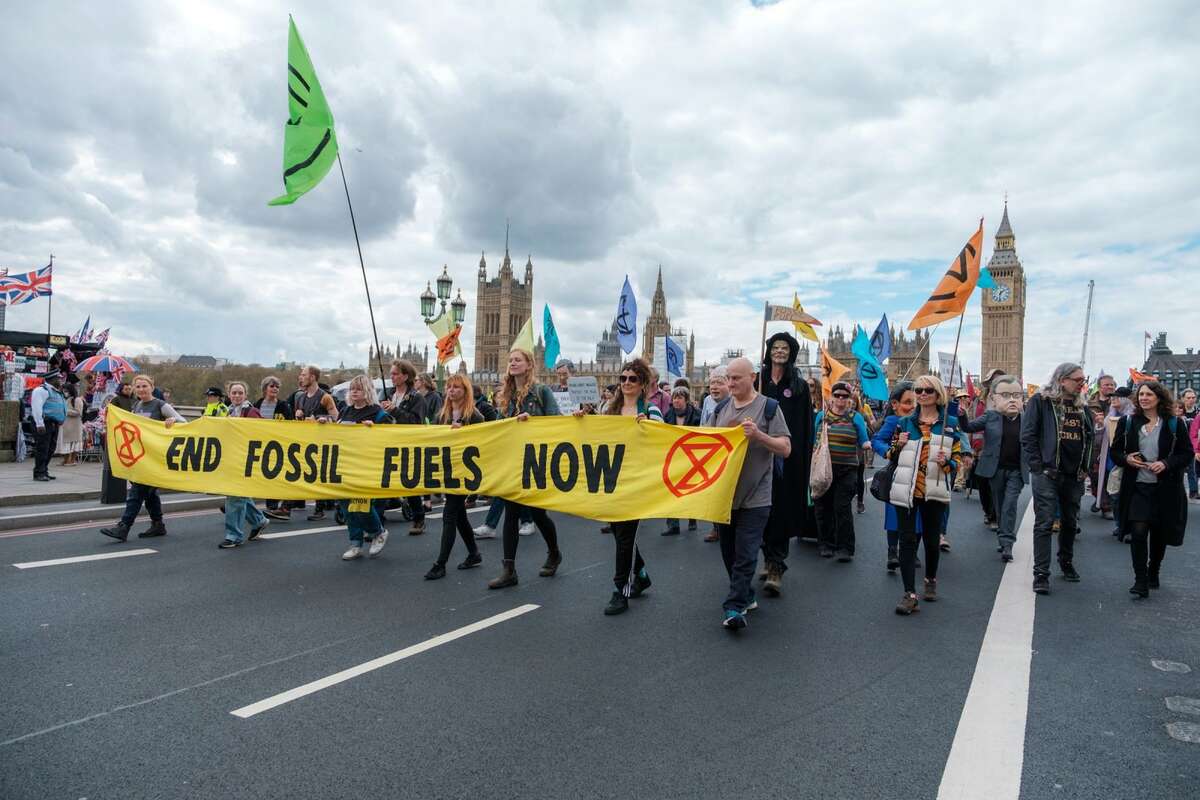For years, the priority of many environmentalists has been to get the public to care about climate change via data and science — to agree that we do, indeed, have a problem that needs fixing.
But to truly connect with people, we need to understand what they care about. And it’s time for the climate community to reorient toward empathy, and approach people’s pressing day-to-day needs with understanding.
Let’s face it, the planet isn’t everyone’s priority. According to a Climate Reality Barometer survey conducted across 39 economies, Generation Z — also known as “Generation COP,” since the designation applies to those born after the first U.N. climate summit in 1995 — cares more about inflation than it does about climate.
This data, and corresponding protests across many countries — protests against rising housing costs and stagnating wages, to name just a couple inflationary examples — explains why the climate community is finally, however awkwardly, starting to lean into equity issues. But there’s so much more to do.
If we’re going to build a political mandate for climate action, we need to prove that the process of decarbonizing buildings and cities is going to improve people’s lives — especially those from low income and marginalized communities, as well as those primarily concerned with the cost of living. They need to see and understand that life will be easier, that heating their homes will be cheaper and that job opportunities will be better.
Thus, rather than leading with climate data and science while promoting health, safety and economic “co-benefits” as bonus add-ons, climate advocates need to flip the script. Climate needs to become the co-benefit, and we need to lead with what people care about most instead — and for most people, the top concern continues to be economic issues, far above climate.
If we want to accelerate climate action, people need to see and experience its real-life benefits. And they need to see it soon because there’s a growing backlash against climate policy in cities around the world.
In Europe, for example, there’s been a worrying reactionary response to climate action in recent months. From the farmers’ protests in the Netherlands to the heating hammer in Germany, from the Yellow Vests in France to the backlash against the 15-minute city and “Ultra-Low Emission Zones” in the United Kingdom, climate action is being weaponized across the Continent.
Meanwhile, in the U.S., there’s a similar trend with people taking a stand against things like the electrification of stoves and the promotion of plant-based diets. It taps into a larger cultural war that’s playing out across the country, with hyperbolic rhetoric about the climate community coming for your gas stove and your hamburger.
But why this backlash?
One reason is because the climate movement isn’t doing a good job of communicating the benefits of these policies to vulnerable communities, or of recognizing their potential as powerful allies.
Just take a look at the housing crisis: It turns out that across Europe, people googled the term “housing crisis” twice as much as the term “climate crisis” over the past year. However, media coverage on climate outpaced coverage on the housing crisis by around 10-to-one over the same period. This is no surprise given that housing is simultaneously a fundamental human right, our biggest monthly cost and one of the biggest drivers of climate change, contributing 21 percent of total global carbon emissions. No wonder our homes are turning into one of the key battlegrounds of the climate movement.
How, then, do those of us working to curb climate change reorient our work toward what people actually care about?
First, we debunk the myth that climate action is expensive and will cost jobs. Housing affordability is too often pitted against climate action, and decarbonizing key industries is too often synonymous with job losses. But the truth is, if managed with care, making a home more energy efficient can end up saving money, and decarbonizing construction can create millions of new green jobs.
Second, we need to take the time to empathize with people’s concerns. Making things that people want always starts with empathy — just ask Steve Jobs. And climate action is no different.
We have to set aside our assumptions and take the time to gather data, interview people, scan social media and read their personal stories. Something that will inevitably lead to some hard truths — like the fact that 40 percent of Americans are struggling to pay their bills month to month, or that construction workers are five times more likely to die from suicide than from an on-site accident — but it’s important.
Finally, we need to start actively partnering with groups that represent these day-to-day concerns. And on this front, labor and tenant unions alike are starting to collaborate with climate advocates more and more on issues that serve both agendas.
For example, thanks to its combination of worker power and climate savvy, the BlueGreen Alliance in the U.S. was instrumental in the inclusion of good green unionized jobs in the Inflation Reduction Act. Or, there’s the Buildings Breakthrough, which aims to make near-zero emissions and climate resilient buildings the new normal by 2030. A collaborative effort between 28 countries, this project presents us with the opportunity to embed labor and housing rights in the core of climate action on buildings.
Similar alliances are appearing in Europe too. Public transport workers and climate activists teamed up to advocate for better working conditions in Germany; construction unions teamed up with Fridays for Future to advocate for policy that protects construction workers from heat stress in Austria and Switzerland; and Pan-European coalitions like Build Better Lives unite climate advocates with labor and housing advocates to promote the benefits of energy efficient buildings.
While it’s not easy to empathize and collaborate with people from radically different walks of life, this is the necessary work going forward. And climate advocates need to wake up to the fact that public support for climate action will only be won through a committed focus on people’s daily needs.
This will require the climate community to step up its game and learn more about affordable housing and working conditions in key industries. We can’t continue to be in competition. The public has no patience for it.
This means it’s time for the climate community to usher in a new way of working. And not in a tokenized way that’s used to sell folks on a climate agenda, but one that sits with the real concerns of Gen Z when they say that inflation is their priority.
It also means that from now on, job opportunities and job creation will be front and center; housing affordability and health benefits will be paramount; and the energy independence and freedom that comes from no longer needing fossil fuel imports will likely all play a more important role than climate data and science.
This will be a game changer for the climate community.












